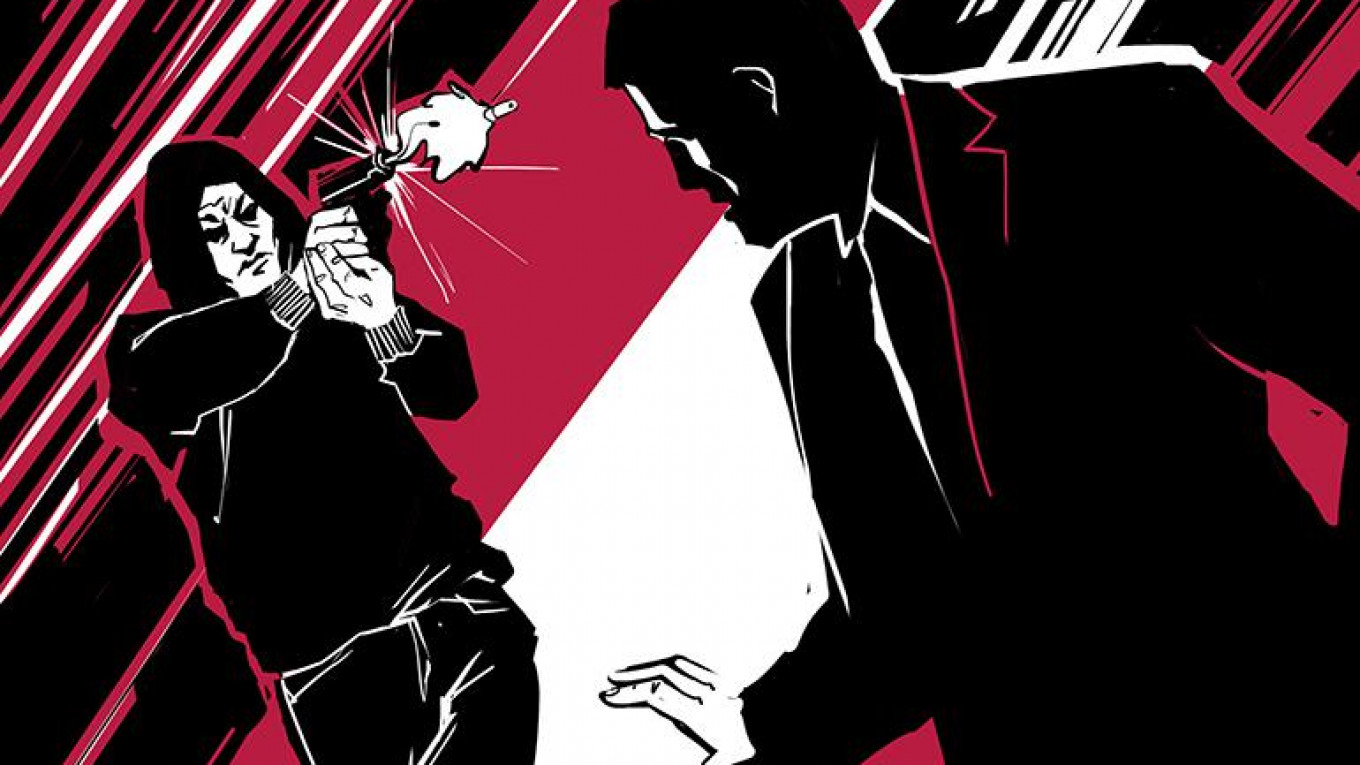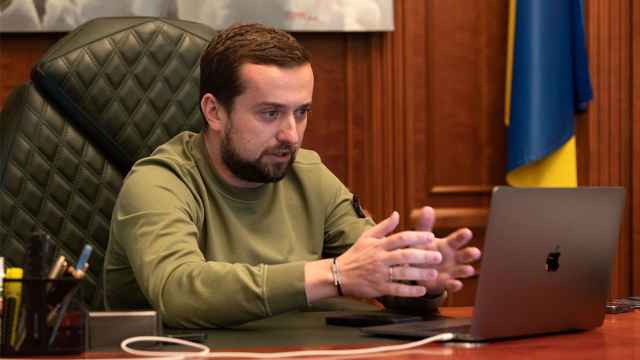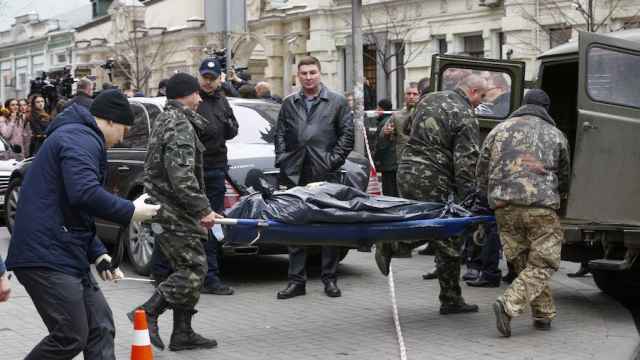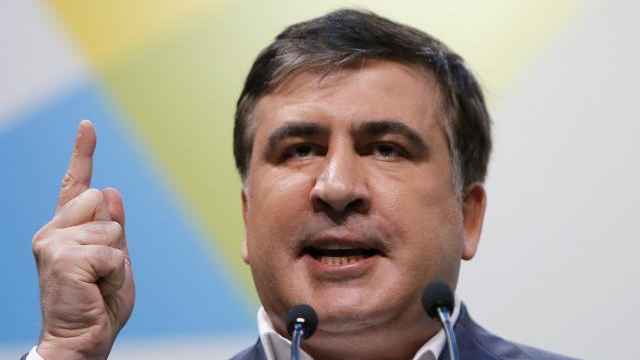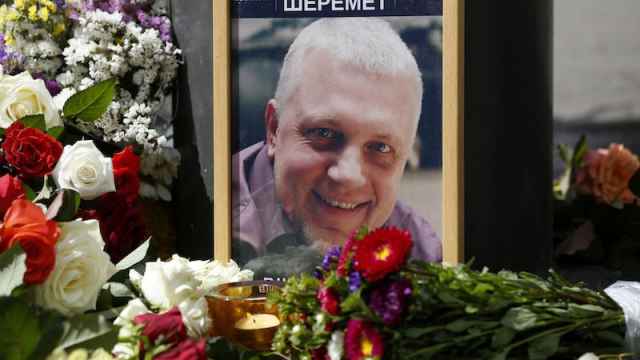The shocking assassination of Russian politician-turned-pariah Denis Voronenkov last week has sharpened fears among the Russian diaspora of Moscow’s inclination toward vendetta.
Although the motivation for the killing is not yet clear, the sad irony is that Moscow’s geopolitical status means that, not only will it be blamed for any such incident, it will also perversely benefit from them.
A Communist Party deputy who voted for the Crimean annexation before fleeing to Kiev in 2016 and receiving fast-track Ukrainian citizenship, Voronenkov was undoubtedly a hated figure in certain Moscow circles. Much like criminals, spies, zealots and revolutionaries, today’s masters of the Kremlin regard traitors as even worse than regular enemies. In Dante’s Inferno, virtuous pagans face limbo, but heretics are trapped in flaming coffins. In Putin’s Inferno, apostates may face the bullet, the bomb, or the isotope instead, but the spirit of it is much the same.
Despite Kiev’s quick (and predictable) attribution of blame, the style of the hit – amateurish, without back-up – does not immediately suggest a Russian security services operation. A single gunman with an ageing (and jam-prone) Tokarev pistol taking on a target with an armed bodyguard on a busy daytime street does not seem professional. Besides, the risk that he would be caught alive was considerable.
Of course, the Kremlin’s fingerprints could still be on the trigger. The Russians certainly seem to have had the best motive to want Voronenkov dead, and might have had to use whomever they could find. However, at this stage, we cannot rule out the possibility that it was a personal enemy, someone who feared what Voronenkov knew, or someone with a less predictable motive.
On another level, the motivation and the “client” matter significantly less than why people think the murder was ordered and who they believe was behind it.
Here is the bitter irony: If you are a regime striving for legitimacy, being assumed to dispatch assassins against your enemies left, right and centre is a problem. But if you have already embraced the dark side, then it actually becomes an advantage. You have no real soft power to lose, and only what we could call dark power to gain.
Litvinenko’s murder (definitely a Kremlin hit) chilled the Londongrad set, and oligarchs and minigarchs who until then had flirted with anti-Putin politics, suddenly embraced the virtues of apolitical charitable activity instead. Who would be next on the hit list if they didn’t mend their ways?
Magnitsky’s murder (at the very least covered up by the Kremlin) sent out a warning to anyone thinking of standing against the corrupt schemes of those in government. Is any business worth dying for?
Nemtsov’s murder (in my opinion not a Kremlin-sanctioned hit) caused the Kremlin considerable short-term angst and confusion, but has helped raise the profile of Chechnya’s Ramzan Kadyrov as the bogeyman of Russian politics. Who could even dream of restraining the Chechen cutthroat if not Putin?
Even Russia’s expensive and likely unwinnable Donbass adventure has, in its own way, also become a generator of ‘dark power.’ Watch how Belarus’s Lukashenko, after openly challenging Moscow during high-stakes haggling over energy prices, begins to echo Russian lines about “Western interference” the more his own security people start worrying about hybrid warfare at home. Can smaller states in Russia’s self-proclaimed sphere of influence — but outside the protective embrace of NATO or the European Union — stand against Putin?
‘Dark power’ generates itself through fear, suspicion, and expectation. But it also taints and corrodes. The more Russia seems to revel in near-pariah status, the more effective its bullying. But for a country with the economy of a second-rank European state, yet aspirations to be a global power, soft power and productive partnerships will prove much more valuable in the long run.
Perhaps not Putin, but certainly his eventual successor will face the daunting task of wiping away this taint and finding ways to convert ‘dark power’ back into something more productive. The more blood assumed to be on Russia’s hands — whether deserved or not — the harder this will be.
Mark Galeotti is a senior researcher at the Institute of International Relations Prague and heads its Centre for European Security.
A Message from The Moscow Times:
Dear readers,
We are facing unprecedented challenges. Russia's Prosecutor General's Office has designated The Moscow Times as an "undesirable" organization, criminalizing our work and putting our staff at risk of prosecution. This follows our earlier unjust labeling as a "foreign agent."
These actions are direct attempts to silence independent journalism in Russia. The authorities claim our work "discredits the decisions of the Russian leadership." We see things differently: we strive to provide accurate, unbiased reporting on Russia.
We, the journalists of The Moscow Times, refuse to be silenced. But to continue our work, we need your help.
Your support, no matter how small, makes a world of difference. If you can, please support us monthly starting from just $2. It's quick to set up, and every contribution makes a significant impact.
By supporting The Moscow Times, you're defending open, independent journalism in the face of repression. Thank you for standing with us.
Remind me later.



